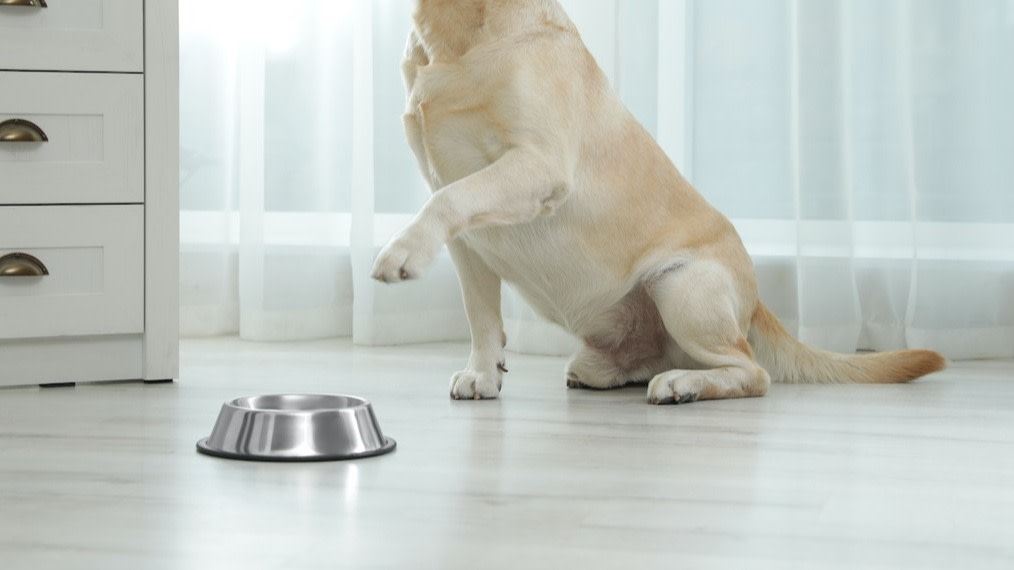Can Dogs Eat Yams? 5 Tips for Preparing Yams for Dogs
Written by MasterClass
Last updated: Mar 18, 2022 • 4 min read
Dogs can eat yams and enjoy the many nutritional benefits of the sweet tubers. These veggies come packed with canine-friendly nutrients that benefit your pet’s health and wellness. Learn more about what makes yams good for dogs.
Learn From the Best
Can Dogs Eat Yams?
Yes, your dog can eat yams—just remember to cook them first. By boiling or cooking these starchy root vegetables, you rid them of certain tannins and compounds that could prove toxic to your dog. While raw yams might not be good for your dog, cooked yams are an excellent whole food for your furry friend. The vegetables are high in carbohydrates, vitamins, minerals, and other nutrients, making them a potentially good supplement to your usual dog food.
Are Yams and Sweet Potatoes the Same Thing?
True yams come from Africa, whereas sweet potatoes are far more common in the Americas. Part of the confusion comes from so many people and grocery stores using these terms interchangeably. In North America, for instance, sweet potatoes are far more common, and companies occasionally market them as yams.
While yams and sweet potatoes hail from different homelands and possess some minor differences, both offer the same health benefits to your dog. Make sure to cook yams and sweet potatoes before feeding them to your pet since in their raw forms, they can be toxic to dogs.
Beneficial Nutrients in Yams for Dogs
Both yams and sweet potatoes have high nutritional value for dogs. These eight nutrients come with health benefits for your pet:
- Beta-carotene: This nutrient contains high amounts of vitamin A, a compound that can reduce heart disease risk for your dog. Certain studies also show beta-carotene could have a positive effect on reducing certain types of cancer.
- Calcium: When dogs eat yams or sweet potatoes, they consume ample amounts of calcium. This nutrient increases bone strength and contributes to heart and muscle health.
- Diosgenin: This ingredient in yams and sweet potatoes might improve brain performance for dogs. Diosgenin is also an anti-inflammatory, so yams could also help reduce a dog’s inflammation and the pain associated with it.
- Fiber: Yams are chock-full of dietary fiber, which can help regulate your dog’s digestive system. Still, feed your pet yams in moderation—the right amount can relieve constipation, whereas too much could bring on diarrhea.
- Magnesium: Yams contain magnesium and manganese, two similar minerals that help facilitate energy production throughout your dog’s body.
- Potassium: Yams and sweet potatoes are good sources of potassium, which can boost your dog’s energy levels. Dogs can also eat bananas, another good source of potassium.
- Vitamin C: A powerful antioxidant, vitamin C can boost your dog’s immune system. Yams also contain high amounts of vitamin B6, which can increase canine energy levels and brain performance.
5 Tips for Preparing Yams for Dogs
Dog owners should keep a few things in mind when preparing yams for their dogs:
- 1. Add new foods to your dog’s diet gradually. Regardless of the dog breed, it’s always best to slowly introduce new foods into your pet’s diet. Too many yams at once can wreak havoc on a dog’s digestive system. To provide your dog with the food’s benefits, use smaller, more moderate quantities.
- 2. Check with your vet. While cooked yams are generally safe for canine consumption, it’s still important to ask your vet whether your specific dog can eat them. For instance, diabetic dogs might see too high a spike in blood sugar from eating these sweet vegetables. Yams can also cause an increased chance of a heart condition known as dilated cardiomyopathy (DCM) in certain canines.
- 3. Cook yams before serving them. Cooked yams are as good for your dog as raw yams are potentially bad for them. First, wash and peel the vegetables, then always heat up the sweet potatoes or yams beforehand. This makes them softer and eliminates tannins and other compounds that are harmful to dogs’ digestive systems.
- 4. Keep the recipe basic. Your dog’s diet should veer toward being as basic as possible, so serve them yams free of additional preservatives, seasonings, and sweeteners. Always opt for fresh rather than canned yams, as the latter can contain added sugars and ingredients that will cause stomach upset.
- 5. Serve yams in small pieces. Large amounts of yams or sweet potatoes can cause intestinal blockages for your pets. You also run the risk of these big portions becoming choking hazards. Cut yams into small pieces—about the size of a dog treat or dog chew—especially for small dogs. Small portions also help prevent obesity, which can become a life-threatening condition.
Before Sharing With Your Pooch
Certain human foods can cause adverse reactions in canines, so always consult your veterinarian to determine whether it is safe to add these foods to your pet’s diet. This article is for educational and informational purposes and is not a substitute for medical or dietary advice.
Want to Learn More About Training the Goodest Boy or Girl?
Your dream of having a dog who understands words like “sit,” “stay,” “down,” and—crucially— “no” is just a MasterClass Annual Membership away. The only things you’ll need to train up a well-behaved pup are your laptop, a big bag of treats, and our exclusive instructional videos from superstar animal trainer Brandon McMillan.
